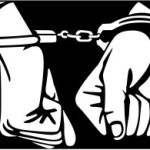The year is 2014 and the largest Disadvantaged Business Enterprise fraud (DBE fraud) in the nation finally ends. Ernest Fink, the owner of a Pennsylvania construction company, is sentenced to 51 months in prison. His crime? Creating a sham company in order to gain lucrative highway contracts reserved for small businesses owned by disadvantaged people. In simple terms, DBE fraud inevitably involves a shady business that takes advantage of combat wounded and handicapped business owners.
It sounds terrible but it goes on every day. When Fink was sentenced in 2014, U.S. District Court Judge Sylvia Rambo said, “DBE fraud is pervasive in the construction industry and persons so inclined to commit the same kind of fraud need to be aware that they face serious consequences from DBE fraud.”
Judge Rambo may have been too “Rambo,” however. A federal appeals court said that Judge Rambo incorrectly calculated the economic harm to the government when sentencing Fink. Last week Judge Fink followed a request from the Justice Department and cut 10 months from his sentence. Fink’s lawyers, however, are still not happy and think he should have been immediately released from prison.
Fink’s case is a reminder of the pervasive DBE fraud that still exists today. It isn’t just limited to contracts set aside for disabled or combat vets, either. Many agencies have programs that set aside contract dollars for businesses owned by women and minorities.
At the time of Fink’s conviction, prosecutors say that he helped create a front company called Marikina Construction Corp. That company nominally qualified as Disadvantaged Business Enterprise but was just a front. Marikina would win contracts based on its DBE status and simply turn the work over to Fink. Fink’s workers would use business cards in the name of Marikina and put magnetic decals over their construction equipment.
The scam lasted 15 years and netted Fink more than $136 million in contracts. What was the harm to taxpayers, however? They got their road build and on budget.
The harm to the government from Fink’s DBE fraud to the government may have been small but the harm to legitimate disadvantaged business owners was devastating. Companies that were already struggling simply couldn’t get any work.
Judge Rambo recognized the harm to disadvantaged businesses when refusing to release Fink from prison. The Justice Department acknowledged that despite $136 million in contract payments, there was little loss to the government. Federal sentencing guidelines look to the government’s loss figures and not third party losses. The guidelines, however, are merely advisory.
In asking the court to keep Fink in prison, a Justice Department memo said, “A sentence of 18 months’ imprisonment would not, in the government’s opinion, reflect the seriousness of the offense, promote respect for the law or provide just punishment for the offense.” We agree.
DBE fraud remains a serious problem in the United States. It is so prevalent because it is so easy to commit. A few business cards and cheap letterhead and the fraud is almost complete. The only thing needed is a disabled person / woman / minority / veteran willing to lend his or her name to the illegal scheme. The big business gets the profits and the front person gets a kickback.
DBE Fraud and the False Claims Act
Both insiders and legitimate competitors can bring an action under the federal False Claims Act and stop these frauds in their tracks. That law allows anyone with inside or original source information to file a lawsuit in the name of the government. If the suit is successful, the insider – called a “relator” – gets between 15% and 30% of the amount collected. It’s like getting paid to be a hero and do the right thing.
Even if you are the token business “owner” at the heart of the scam, you may still be eligible for an award. The award may be reduced, however. Typically, the masterminds of these schemes are big business owners masquerading as DBEs and not the nominal business “owner” who simply lends his or her name to the scheme. (If this sounds like you, call us. We can often approach the Justice Department in advance of filing to assure immunity from any prosecution. Coming forward is always better than getting caught later.)
Need more information? Contact attorney Brian Mahany at or by telephone at (direct). All inquiries are protected by the attorney – client privilege and kept confidential.
Why MahanyLaw? Our whistleblower clients have received over $100 million in award monies. We work hard to stop the fraud and get our clients the maximum possible awards. Cases are handled on a contingency fee basis meaning there is never a charge for legal fees or costs unless you recover money.
MahanyLaw – America’s Whistleblower Lawyers


